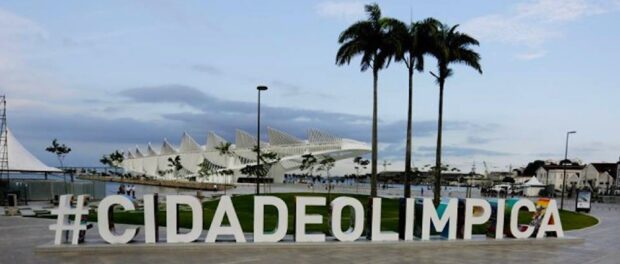
On Thursday July 21, the Anthropology Nucleus at Rio Federal University’s Institute for Philosophy and Social Sciences (UFRJ/IFCS) hosted an event entitled “The city in the time of cholera: the Olympic blow” to discuss urban transformation in Rio de Janeiro and the legacy of the 2016 Olympic Games in the city. The panel consisted of Cláudio Rezende Ribeiro, adjunct professor at UFRJ’s department of urbanism and environment, Julia O’Donnell, researcher and anthropology professor at UFRJ and Heloisa Helena Costa Berto, a Candomblé practitioner and former resident of Vila Autódromo.
Cláudio Rezende Ribeiro began the debate affirming that mega-events like the Olympics and the World Cup have served as catalysts for an ongoing transformation of the city, “a concretization of something that was already happening.” He argued that over the last decade, Rio has been built on the basis of “a logic of emergency,” and that the city itself has become ephemeral and fast-paced.
Julia O’Donnell discussed her recent research project in Barra da Tijuca in the West Zone, the neighborhood that has been most obviously transformed as a result of the Olympics. O’Donnell argues that these transformations are not only physical but symbolic as well. She spoke of the area’s “symbolic redesign” and the City’s aim of creating a new financial center in the city. She outlined the example of the area, now renamed Barra Olímpica, surrounding the newly built Ilha Pura condominium. This renaming, along with the transformed landscape, is an attempt to remove the area’s socio-cultural history which previously included favela and fishing communities.

Heloisa Helena Costa Berto, also known by her spiritual name of Luizinha da Nanã, fought for years to remain in her home and spiritual center in Vila Autódromo until it was demolished by the City on February 24, 2016. The removal of communities like Vila Autódromo, she said, is not a new phenomenon. The problem, she lamented, is that the rich want to live far away from the poor because of a history filled with prejudice: “We live in a country, in a city, which is extremely prejudiced, prejudiced with respect to religion, prejudiced with respect to race.”
The debate opened up for questions from the audience, which covered issues including private security projects, the formation of favela networks and resistance movements, forced evictions and Olympic legacies internationally.
Heloisa Helena spoke of the intimidation techniques used to evict residents in Vila Autódromo, such as pitting neighbors against neighbors and using techniques to diminish the force of the resistance movement.
Cláudio discussed the privatization of the city and various strategies that are put in place to hide the poor, a practice that is “traditional with globalization.” He argued that social configurations in Rio de Janeiro are marked by the city’s history of slavery and “the permanence of a prejudiced relationship that is very strong.”
Regarding future Olympics and potential rights violations going forward, Heloisa suggested the UN take action in such situations, saying: “The UN, as an international organ, should put itself on the front line.” Claudio also highlighted the necessity of considering the broader context of the city and the growth of resistance movements.

